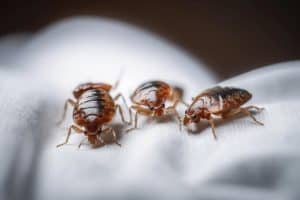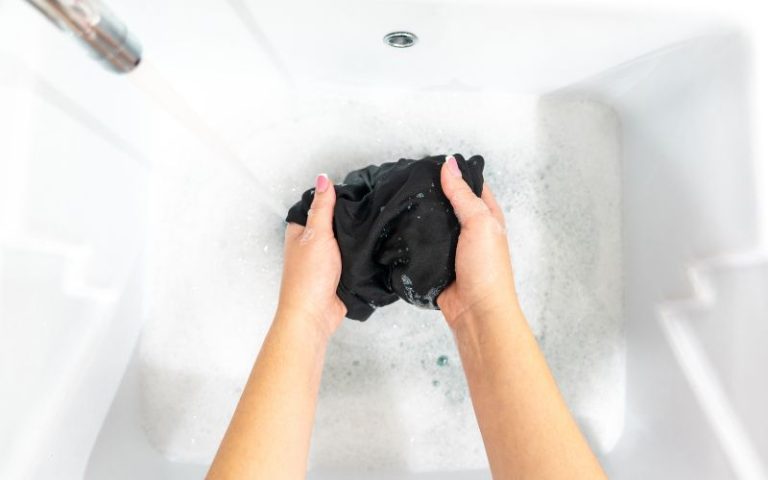Bed bugs are a notorious nuisance, and the fear of bringing them home from hotel stays can deter some travelers. But can you really get bed bugs just from an overnight hotel stay? Here’s a quick answer: Yes, it is definitely possible to encounter bed bugs in a hotel and inadvertently transport them back home.
In this comprehensive guide, we’ll cover everything you need to know about the risk of bed bugs in hotels, how to inspect for them, steps hotels take for prevention, and what to do if you suspect an infestation during your stay.
The Risk of Bed Bugs in Hotels
When it comes to staying in a hotel, one concern that often comes to mind is the risk of encountering bed bugs. These tiny, blood-sucking insects have become a common problem in hotels around the world. While not all hotels have bed bugs, it is important to be aware of the potential risks and take necessary precautions to avoid bringing these pests back home with you.
Bed Bugs Sometimes Go Unnoticed in Hotel Rooms
 One of the main reasons why bed bugs are a concern in hotels is because they can go unnoticed. These pests are excellent at hiding in cracks and crevices, such as mattress seams, headboards, and furniture. Even if a hotel room appears clean and well-maintained, it doesn’t guarantee the absence of bed bugs. They can be brought in by previous guests or hitch a ride on luggage and clothing.
One of the main reasons why bed bugs are a concern in hotels is because they can go unnoticed. These pests are excellent at hiding in cracks and crevices, such as mattress seams, headboards, and furniture. Even if a hotel room appears clean and well-maintained, it doesn’t guarantee the absence of bed bugs. They can be brought in by previous guests or hitch a ride on luggage and clothing.
It is important to note that bed bugs are not a result of poor hygiene or cleanliness. They can infest any place, including luxury hotels. Therefore, it is crucial to be vigilant and take preventive measures to protect yourself from bed bug infestations.
High Turnover Increases Risk in Certain Properties
Hotels with a high turnover rate, such as budget accommodations and hostels, are more susceptible to bed bug infestations. With guests constantly coming and going, there is a higher likelihood of bed bugs being introduced into the rooms. Additionally, these properties may have limited resources for regular pest control measures, making it easier for bed bugs to establish themselves.
However, it’s worth mentioning that bed bugs can be found in any type of hotel, regardless of its rating or price range. Even upscale hotels can fall victim to these pests due to factors like guest travel patterns and the ease with which bed bugs can hitch a ride on luggage or clothing.
Bed Bugs Travel in Luggage and Clothing
One of the most common ways bed bugs are introduced into hotel rooms is through luggage and clothing. These pests can easily crawl into suitcases, backpacks, and even clothing items. Once inside the room, they quickly find hiding spots and begin to multiply, making it difficult to detect an infestation until it becomes a noticeable problem.

To minimize the risk of bringing bed bugs home, it is important to inspect your luggage and clothing before leaving a hotel. Look for any signs of bed bugs, such as bloodstains, dark spots, or the bugs themselves. Additionally, consider using protective encasements for your luggage and keeping it off the floor and bed during your stay.
It is also a good practice to wash and dry your clothes on high heat after returning from a hotel stay. This can help kill any bed bugs or eggs that may have made their way into your belongings.
Remember, while the risk of encountering bed bugs in hotels exists, it should not discourage you from traveling and staying in hotels. By being proactive and taking preventive measures, you can greatly reduce the chances of bringing these unwanted guests home with you.
How to Inspect a Hotel Room for Bed Bugs
When staying in a hotel, it’s important to take some precautions to avoid encountering the dreaded bed bugs. These tiny pests can cause itchy bites and can be a real nuisance. Here are some tips on how to inspect a hotel room for bed bugs:
Check the Mattress Seams and Headboards
Start by carefully examining the seams of the mattress. Bed bugs are small and flat, so they can easily hide in the crevices. Look for any signs of bed bug activity, such as dark spots or stains, which could be fecal matter left behind by the bugs. Also, inspect the headboards for any signs of bed bugs or their eggs.
Look in Bedding, Furniture, and Baseboards
Next, check the bedding for any signs of bed bugs. Lift the sheets and inspect the mattress pad, as well as the pillows and pillowcases. Pay attention to any dark spots or blood stains, as these could indicate bed bug activity. Don’t forget to check the furniture in the room, such as chairs, sofas, and desks. Bed bugs can hide in the cushions and seams of furniture as well. Finally, take a look at the baseboards and any cracks or crevices in the room, as bed bugs can also hide in these areas.
Watch for Blood Spots and Molted Skins
Another sign of bed bug activity is the presence of blood spots on the sheets or mattress. These spots are typically small and dark, and they can indicate that bed bugs have been feeding on you while you sleep. Additionally, look for any molted skins, as bed bugs shed their exoskeletons as they grow. These skins are usually translucent and can be found near their hiding spots.
Remember, even the cleanest hotels can have bed bugs, so it’s important to be vigilant when inspecting your hotel room. If you do find any signs of bed bugs, alert the hotel staff immediately and ask to be moved to a different room. It’s always better to be safe than sorry when it comes to these pesky pests!
Preventative Measures Hotels Take Against Bed Bugs
Careful Inspections Between Guest Stays
Hotels understand the importance of providing a clean and comfortable environment for their guests, which is why many establishments have implemented meticulous inspection protocols to prevent bed bug infestations. After a guest checks out, the hotel staff conducts a thorough inspection of the room, including the bedding, furniture, and even the walls. This helps to identify any signs of bed bugs such as live bugs, shed skins, or dark spots on the mattress or furniture. By catching any potential infestations early on, hotels can take immediate action to eradicate the problem before the next guest arrives.
Specialized Cleaning and Pest Control
 In addition to regular cleaning practices, hotels often employ specialized cleaning techniques to combat bed bugs. This may include steam cleaning the mattresses and upholstery, as high temperatures can effectively kill the bugs and their eggs. Some hotels also partner with professional pest control companies to conduct regular inspections and treatments to ensure that their rooms remain bed bug-free. These proactive measures not only protect guests from potential bites but also help maintain the hotel’s reputation for cleanliness and hygiene.
In addition to regular cleaning practices, hotels often employ specialized cleaning techniques to combat bed bugs. This may include steam cleaning the mattresses and upholstery, as high temperatures can effectively kill the bugs and their eggs. Some hotels also partner with professional pest control companies to conduct regular inspections and treatments to ensure that their rooms remain bed bug-free. These proactive measures not only protect guests from potential bites but also help maintain the hotel’s reputation for cleanliness and hygiene.
Training Housekeeping Staff for Detection
Hotels recognize that prevention is key when it comes to dealing with bed bugs. To ensure that their staff is well-equipped to identify signs of infestations, many hotels provide comprehensive training programs for their housekeeping staff. These programs educate the staff on the common hiding spots and signs of bed bugs, allowing them to detect any early indications of an infestation. By training their employees, hotels can take swift action to address the issue and prevent it from spreading to other rooms. This proactive approach not only protects the guests but also helps hotels save on potential costs associated with treating widespread infestations.
It’s important to note that while hotels take extensive measures to prevent bed bug infestations, it doesn’t guarantee that every room is free from these pests. Guests can also play a role in preventing bed bugs by taking precautions such as keeping luggage elevated on luggage racks and inspecting the room before unpacking. By working together, hotels and guests can minimize the risk of bed bug encounters and ensure a pleasant stay for everyone.
What to Do if You Find Bed Bugs in a Hotel
Report it Immediately to Hotel Staff
 If you discover bed bugs in your hotel room, don’t panic. The first step is to calmly and promptly notify the hotel staff. They need to be aware of the situation so they can take appropriate action to address the issue. By reporting it, you not only protect yourself but also help prevent the spread of bed bugs to other guests. Remember, hotels take bed bug infestations seriously, and it is in their best interest to resolve the problem as quickly as possible.
If you discover bed bugs in your hotel room, don’t panic. The first step is to calmly and promptly notify the hotel staff. They need to be aware of the situation so they can take appropriate action to address the issue. By reporting it, you not only protect yourself but also help prevent the spread of bed bugs to other guests. Remember, hotels take bed bug infestations seriously, and it is in their best interest to resolve the problem as quickly as possible.
Request a New Room
After reporting the bed bugs, it is crucial to request a new room. Ideally, you should ask for a room that is not adjacent to or directly above or below the infested room. Bed bugs can easily move between rooms through wall cavities and electrical outlets, so it’s important to distance yourself from the affected area. Inspect the new room thoroughly before settling in to ensure it is free from any signs of bed bugs.
Inspect and Wash Belongings Upon Returning Home
Once you have returned home from your hotel stay, it is essential to inspect and wash your belongings. Bed bugs can hitch a ride on your luggage, clothing, and personal items, so it is crucial to take preventive measures. Inspect your suitcases, bags, and clothing for any signs of bed bugs, such as dark stains, shed skins, or even live bugs. If you spot any evidence, immediately place the items in a sealed plastic bag and wash them in hot water. Dry them on high heat to kill any remaining bed bugs.
It’s important to note that bed bugs are not an indicator of poor cleanliness. These pests can be found in even the most upscale hotels. By following these steps and being vigilant, you can minimize the chances of bringing bed bugs home with you. For more information on bed bug prevention and treatment, visit CDC’s website. Remember, early detection and swift action are key to dealing with bed bugs effectively.
Conclusion
While no hotel is completely immune, the risk of encountering bed bugs during hotel stays remains relatively low with proper precautions. Being able to identify signs of an infestation and working promptly with hotel staff can help contain any potential bed bug introduction.
By staying vigilant and taking proactive measures, travelers can still comfortably enjoy hotel accommodations without bringing home any unwanted pests.






